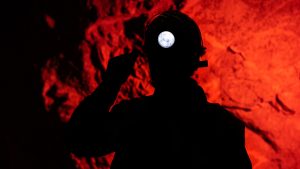Has construction of net-zero buildings reached the point where net-zero can be considered a trend? Some folk in the United States think so, and they have just released a research paper that backs up their opinion.
Three groups — the New Buildings Institute (NBI), the Zero Energy Commercial Building Consortium (CBC), and the National Association of State Energy Officials (NASEO) — have taken what they call a first look at the costs and features of zero-energy commercial buildings, and what they found is encouraging.
First of all, zero-energy buildings are referred to as ZEBs. A second category, called ZECs, or zero-energy capable buildings, are those that achieve energy performance similar to ZEBs, but need to add on-site power generation to qualify as ZEBs. The 60 completed projects studied fall into those two categories, although researchers found another 39 projects that might qualify as ZEBs, but weren’t included in the study because they are either still under construction or are so new that there isn’t much performance data available yet.
Most of these early ZEBs are smaller buildings — houses, schools, churches, libraries and the like, although examples of larger and more complicated commercial buildings are beginning to show up. Much of the early work on ZEBs has been done by government agencies and universities, because they serve as demonstration projects.
Some of the study’s key findings:
• Net-zero is achievable using readily obtainable technology and at a reasonable cost premium.
• Modeling studies led to the prediction that the additional costs for ZEBs would be between three and 18 per cent. Initial information from the buildings completed show that those extra costs actually range from zero up to 10 per cent. One project in the study actually achieved a modest net saving.
• Completed ZEBs are in a range of climates, from balmy California to the mountain climate of Colorado, to the sometimes-severe climate in New York State.
• Some state and local governments have begun to develop policies to encourage ZEBs.
There is no doubt that builders are interested. The New Buildings Institute , for example, has more than 450 commercial builders in its membership. The CBC has almost 500.
The American federal energy department was the driving force behind the formation of CBC. As it has evolved, it is a public-private non-profit that works closely with the energy department to deliver technology, policies and information in an effort to transform the commercial building sector in the U.S. to net-zero energy.
Commercial homebuilders are also showing more and more interest, with a dozen or so already offering net-zero residences. One of them, in Colorado, is offering a net-zero home at $188,000, which is just $9,000 more than the Energy Star version of the same house.
That $9,000, however, would be recouped in energy savings in about 12 years.
Advocates of net-zero have a word of warning, however. The success of such a building depends largely on the people who use it.
If occupants aren’t committed to reducing energy use by shutting windows, for example, or turning off appliances, a net-zero building can easily lose its status as a ZEB and become just another “efficient” building
Anyone interested in the concept of net-zero and the direction it’s taking in the U.S., will find the websites maintained by the NBI and CBC to be goldmines of information — newsletters, longer articles and blogs — all written by people knowledgeable in the field. As well, you can download the research study I’ve quoted from either site. Look for Getting to Zero 2012 Status Update.
The third group, the National Association of State Energy Officials, also has an informative website, but one that is directed more to people interested in policy development. You’ll find it at www.naseo.org.
Korky Koroluk is an Ottawa-based freelance writer. Send comments to editor@dailycommercialnews.com











Recent Comments
comments for this post are closed